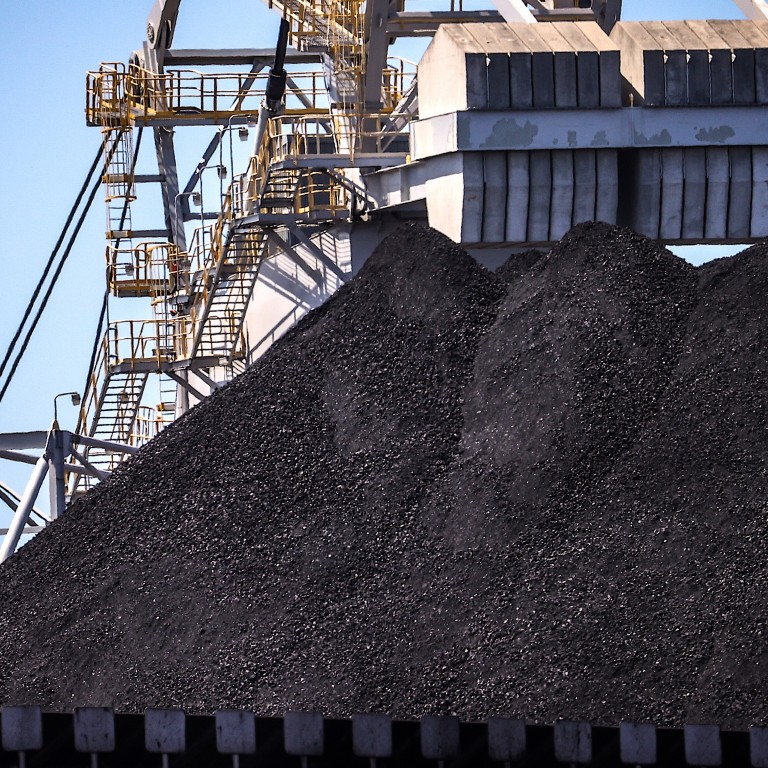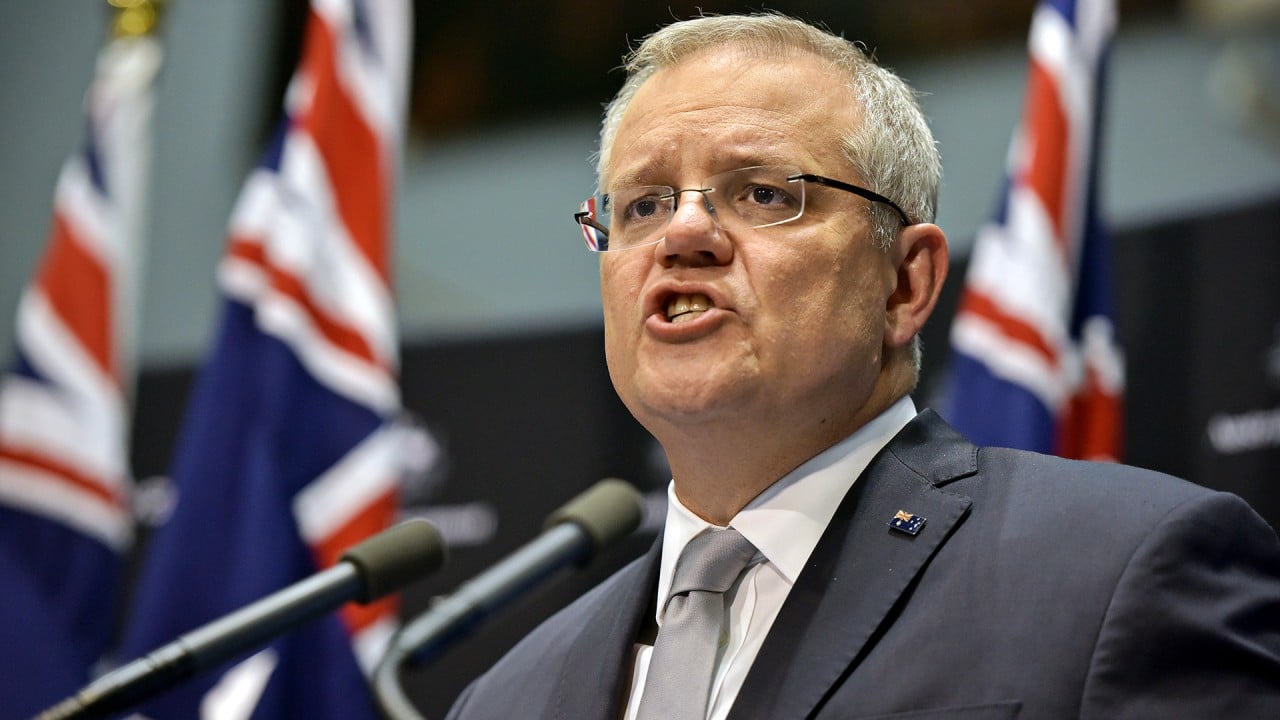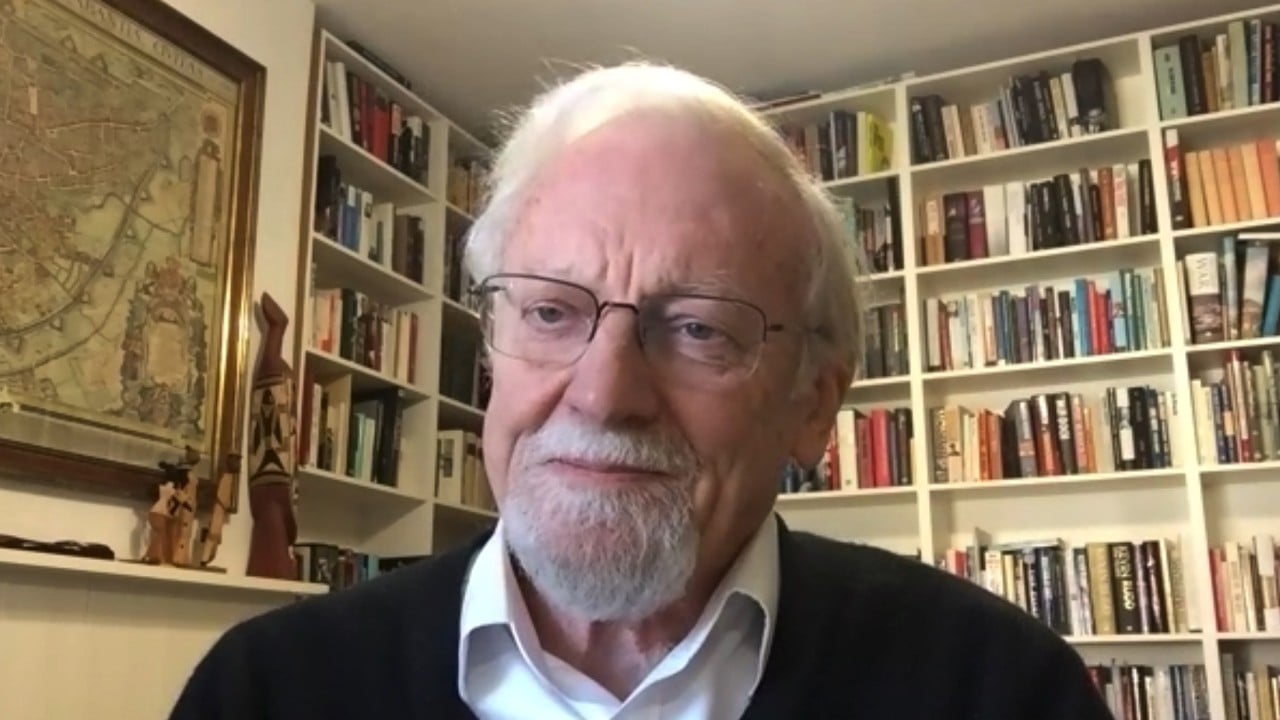
China-Australia relations: Canberra ‘keeping the door open’ as questions swirl over coal import ban
- Canberra has used a less antagonistic tone with Beijing over a new ban on Australian coal, former diplomats and China watchers say
- Relations have nosedived after Canberra called for an investigation into the origins of the coronavirus without first consulting Beijing
Canberra’s response to China’s ban on Australian coal exports has hinted at more conciliatory engagement with Beijing, but former diplomats and analysts said it was too early to tell if tensions have eased.
Relations have nosedived since Canberra called in April for an investigation into the origins of the coronavirus without first consulting Beijing.
Australian trade minister Simon Birmingham and Prime Minister Scott Morrison have played down the ban, saying there was no evidence it was politically motivated and restrictions on coal shipments into China were common, particularly when steel mills and utilities have exhausted domestic quotas.

01:49
Australia suspends extradition treaty with Hong Kong, offers residency pathway for Hongkongers
“We have concerns about a number of decisions that have been taken during the course of this year,” Birmingham said on Tuesday. “But China remains an important trading relationship, an important regional partner, and the Australian Government continues to believe that our produce across a range of different categories provides for a mutually beneficial trading relationship.”
Former Australian defence secretary Paul Barratt said Birmingham’s response was more professional than some earlier statements this year.
“I think if you go back to the initial call about the Covid-19 investigations after Scott Morrison took a call with US President Donald Trump there is a difference,” he said.
“Birmingham sounded like a minister speaking to his own portfolio and using his own words … ministers have been known to robotically repeat the prime minister’s lines.”
Barratt said it seemed even Morrison, who has a tendency towards “swaggering pub guy talk”, was taking a cue from the more moderate trade minister.
Helen Sawczak, former chief executive at lobby group Australia China Business Council, said Birmingham had shown a nuanced understanding of China’s complex coal industry.
“China is trying to manage several factors including an uncompetitive domestic industry, a domestic stockpile, supply quotas, as well as their recent pledge to be carbon neutral by 2060,” she said. “And unlike iron ore, there are several countries which China can import coal from, including Australia.”
Repair will take time. A lot of damage has been done with little benefit to Australia
John Menadue, who served as secretary of Australia‘s Department of Prime Minister and Cabinet between 1974-76, said behind the scenes conversations with business leaders and former diplomats could be the reason for the “more encouraging” government response.
“Repair will take time. A lot of damage has been done with little benefit to Australia,” said Menadue, who served under prime ministers Gough Whitlam and Malcolm Fraser.
“It will be interesting to see how the Chinese respond, both in Beijing and in Canberra.”
Director of the Australia-China Relations Institute James Laurenceson was less convinced relations were about to turn a corner, saying Birmingham recycled the same words used when China imposed a coal ban last year.

07:34
Australia and China cooperation too valuable for 'nonsensical' decoupling
Last February, China suspended Australian coal imports at its northern port of Dalian, although it also delayed shipments from Indonesia in April. Later that year China regularly tightened coal imports to align supply with demand.
“Birmingham back then cautioned against getting ahead of ourselves,” Laurenceson said. “He notes there have been several decisions that have raised eyebrows, but he’s also said this before.
“I still don’t think the Australian government would be panicking.”
In the year to September, China’s imports from Australia were down by 6.3 per cent compared to a year earlier, but China’s overall imports were down by 14.8 per cent, according to Laurenceson.
“So while it may be the case that individual sectors are being subjected to punishment, the country as a whole isn’t – at least not yet,” he said.
I think China is using a lot of the carrot and stick approach but on the other hand I think it’s possible that both ministers’ statements were careful in keeping the door open
Jocelyn Chey, Australia’s former consul-general to Hong Kong, said while she was surprised by the new tone, it was early days.
“I think China is using a lot of the carrot and stick approach but on the other hand I think it’s possible that both ministers’ statements were careful in keeping the door open,” she said.
Chey, who was one of the first Australian politicians involved in establishing diplomatic relations with China, was alarmed at the way relations had deteriorated.
“I am terribly concerned because this means years of work would have gone down the drain,” she said.

